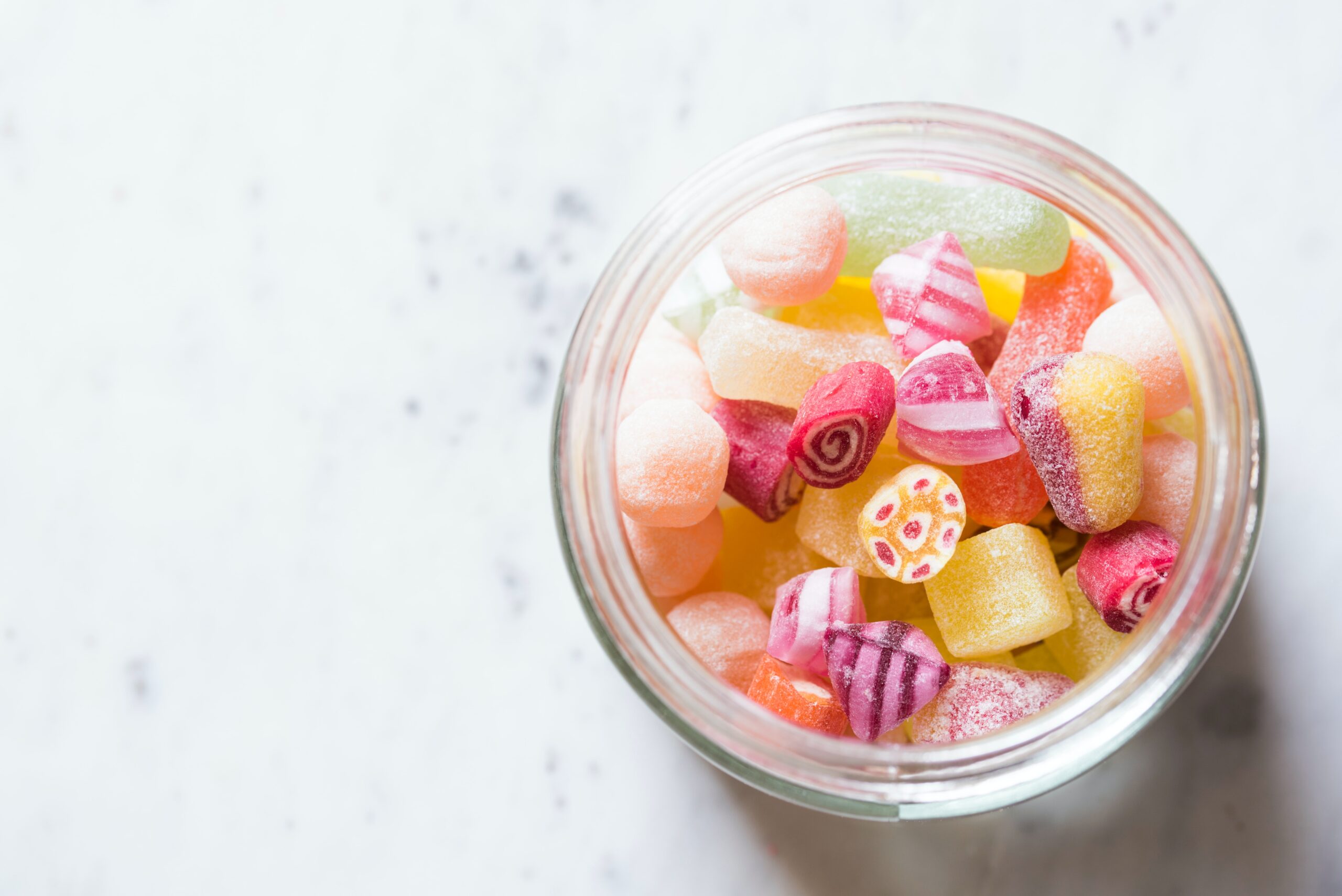We’ve all been there—wearing stretchy pants to dinner, dreading the after-meal “bloat baby,” or avoiding social plans because your stomach feels like a balloon. If you’re feeling frustrated and exhausted by chronic bloating, let me start by saying this: it’s not your fault, and you’re not alone.
Bloating might feel like a “normal” inconvenience because it’s so common, but that doesn’t mean it’s something you should ignore. Bloating is often a signal that your gut is struggling—and it’s trying to get your attention.
Here’s what we’ll cover today:
- Why bloating isn’t just an inconvenience- it’s a sign of gut dysfunction
- What might be causing your bloating
- How you can finally feel relief and regain confidence in your body.

IBS: The Misunderstood Culprit
Irritable Bowel Syndrome (IBS) is one of the most common gut disorders, affecting an estimated 10–15% of people worldwide. But it still remains widely misunderstood. Many think of IBS as “just a nervous stomach” or something caused by eating the wrong foods. In reality, IBS is a complex condition that involves not just the gut, but also the communication between the gut and brain. On average, it takes almost 6.5 years for someone to get a diagnosis of IBS, and once they do, they STILL may not be given the right tools to resolve this condition.
Symptoms often go beyond typical digestive issues: bloating that seems to come out of nowhere, unpredictable bathroom habits ranging from “gotta go now” to constipation, and even chronic fatigue or anxiety. For many, this rollercoaster of symptoms leads to frustration and a sense of hopelessness. But here’s the truth: while IBS is common, it’s not a life sentence. With the right approach, it’s possible to manage symptoms and uncover the root cause triggering your symptoms.
For most of my life, I didn’t really have problems with my gut or “digestion”. Sure, I may have experienced an upset stomach or bloating on occasion, but then I hit my 39th birthday and all of that seemed to change. I began to have trouble tolerating dairy, and assumed I was becoming lactose intolerant just like my mom. I had diarrhea, and bloating almost daily, and often had to take a Gas X and lie down at night because of the abdominal cramping. I was tired all of the time, and was becoming forgetful. I just assumed my daily low energy was related to my super busy schedule, and inconsistent sleep.
I knew that something was wrong, but was always reassured by my providers that all my labs looked normal, and that I was just a busy, working mother. If this sounds like you, I get it. You are looking for answers, even when everyone is telling you there are none.
Fortunately, I decided I was no longer going to take that advice, and would instead search for answers. I dove deep into nutrition, human metabolism, and how the gut is considered the “second brain” of the body. I had some functional testing done (including a GI MAP test), which showed inflammation, increased permeability (or ‘leaking’) of my gut lining, and some serious microbiome imbalances.
Once I knew what I needed to fix, I started making small adjustments to my day, including focusing on hydration, cutting out sugar, trying to move daily, and supporting my body with more greens and whole foods.
Fairly quickly, my daily bloating began to disappear, my sleep improved, and I was waking up rested without my alarm clock. I could actually come home from work and play with my kids, without feeling like I was just going through the motions.
You don’t have to live with chronic bloating and gut dysfunction, but you do have to understand what might be causing it in the first place…and it may not actually be what you think.

Bloating Isn’t Just About What You Eat
Let’s bust a myth: bloating isn’t always about the foods you eat. While food triggers like dairy or gluten can play a role, chronic bloating often points to deeper imbalances in the gut.
Here are some common root causes:
- Gut dysbiosis: An imbalance in your gut microbiome, where “bad” bacteria outnumber the good, can lead to gas, bloating, and inflammation.
- Food sensitivities: Gluten, dairy, or fermentable carbs (FODMAPs) may be triggers, especially if your gut is already inflamed.
- Low stomach acid: If your stomach isn’t producing enough acid, your food isn’t properly broken down, which can lead to fermentation (and gas).
- Stress: Chronic stress impacts the gut-brain axis, slowing digestion and contributing to bloating.
The Real Culprit: Gut Dysfunction
Your gut is the foundation of your health. When it’s working as it should, you digest food smoothly, absorb nutrients efficiently, and eliminate waste without a second thought. But when your gut isn’t functioning properly, problems like bloating, fatigue, and irregular bowel movements creep in.
Here are a few common culprits:
- Leaky gut: When the lining of your gut becomes too permeable, undigested food particles and toxins can enter your bloodstream, causing inflammation and bloating. This is not a true ‘diagnosis’, but rather a dysfunction of the way your gut lining is meant to work. The good news? It can be fixed!
- SIBO (Small Intestinal Bacterial Overgrowth): This occurs when bacteria that should stay in the large intestine move to the small intestine, where they ferment food and create gas. (aka bloating and belly pains)
- Constipation or sluggish motility: When waste sits too long in your system, it can cause gas and bloating. This can occur from taking certain medications (like anti-depressants or pain medications), not eating enough fiber, having a sedentary lifestyle (not moving your body enough throughout the day), or even simply being dehydrated.
How to Start Listening to Your Gut
Your body is always sending you signals—your job is to tune in. When it comes to bloating, here are some questions to help you identify patterns:
- Timing: When does your bloating happen—after certain meals, at specific times of day, or randomly?
- Other symptoms: Do you experience urgency (the sensation of having to poop suddenly), constipation, or fatigue along with bloating?
- Environment: Are you rushed, stressed, or distracted when eating?
Keeping a food and symptom journal can reveal surprising connections and give you valuable insight into what your gut is trying to tell you.
Simple Steps to Start Feeling Better Today
You don’t have to overhaul your entire life to start feeling relief. Here are some quick, actionable tips to ease bloating:
- Keep a food and symptom journal: This will help you identify patterns and triggers.
- Chew your food thoroughly: Aim for 20–30 chews per bite to make digestion easier.
- Drink herbal teas: Peppermint or ginger tea can soothe your digestive system and reduce bloating.
- Practice mindful eating: Take deep breaths before meals, eat without distractions, and savor each bite.
Long-Term Relief Requires a Root-Cause Approach
While these steps can help, lasting relief requires addressing the underlying causes of your symptoms. That’s where a root-cause approach comes in. By using tools like functional lab testing, results from your symptom and digestive questionnaires, and personalized nutrition, I help women uncover what’s really behind their bloating and digestive distress, whether it’s dysbiosis, food sensitivities, or stress.
Through my coaching programs, I create tailored solutions that heal the gut, restore energy, and bring balance back to your body. No more guesswork—just real answers and real relief.
Next Healing Steps
If you’re tired of feeling like your bloating is running the show, it’s time to take back control. I have a few ways to work together, where we dive deeper into gut healing with personalized strategies. Fill out my form here, and I’ll be in touch for next healing steps. Or watch my free training on how to beat bloat for good using my signature Ford Method. Relief is closer than you think.
You Deserve to Feel Amazing
Bloating isn’t “normal,” but it also isn’t permanent. By addressing the root causes and supporting your gut health, you can feel lighter, more energized, and confident in your body again. Take the first step today—your body will thank you!
DISCLOSURE: THIS POST MAY CONTAIN AFFILIATE LINKS, MEANING I GET A COMMISSION IF YOU DECIDE TO MAKE A PURCHASE THROUGH MY LINKS, AT NO COST TO YOU. PLEASE READ MY TERMS OF USE POLICY FOR MORE INFO.







+ show Comments
- Hide Comments
Add a comment